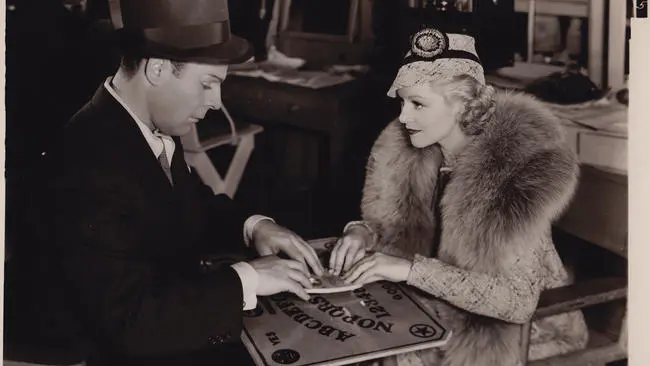Ouija Board Online
The History of the Ouija Board

The Ouija Board, also known as a Spirit Board, is a historic tool embellished with letters, numbers, and symbols, traditionally employed for spirit communication. Its name combines the French and German words for "yes" (Oui and Ja), hinting at its role as a medium for messages from the beyond. Some link "Ouija" to ancient Egyptian luck symbols or to the Moroccan city of Oujda, though these connections are speculative.
Historically, the Ouija Board's origins are shrouded in mystery, with some tracing its lineage back to ancient divination practices in China, known as fuji or "planchette writing", used as early as 1100 AD during the Song Dynasty. These early forms of spirit boards were reportedly used in séances and involved a moving pointer to spell out messages, much like modern Ouija boards.
In the West, the Ouija Board emerged more prominently during the 19th-century American spiritualism movement, a time when communicating with spirits was popular. The first commercial Ouija board was created and patented in 1891 by businessman Elijah Bond, who saw a commercial opportunity in the growing fascination with spiritualism. The board was originally intended as a parlor game unrelated to the occult.
William Fuld, an employee of Bond, took over the production of the Ouija boards and is often mistakenly credited as its inventor. He created the "talking board" set-up as we know it today and started producing it under the Ouija brand. Fuld's name became so associated with the Ouija board that many believed he originated the concept.
The board's popularity soared during and after World War I, as bereaved families sought to contact lost loved ones. This period saw the Ouija board transition from a novelty item to a tool for spiritual communication. The board was further popularized through its use by famous figures like American writer Pearl Curran, who claimed her novels were dictated via a Ouija board by a spirit named Patience Worth.
The Ouija Board's reputation evolved over time, gaining a more sinister image in popular culture, especially after its depiction in horror films. Despite its controversial nature, the board remains a subject of fascination, blending elements of psychology, history, and the supernatural.